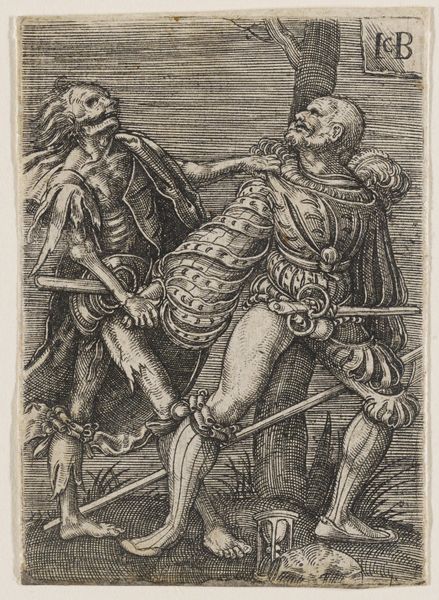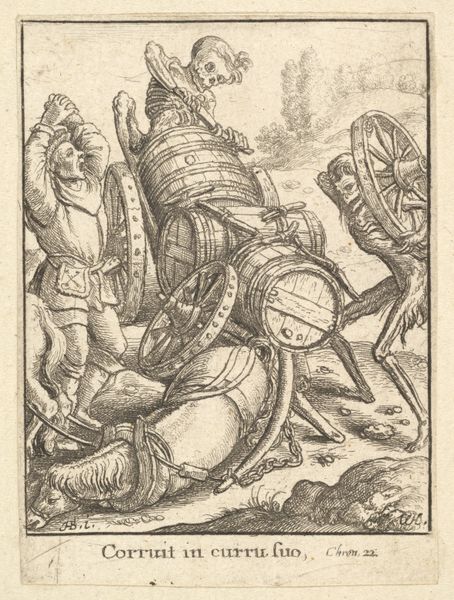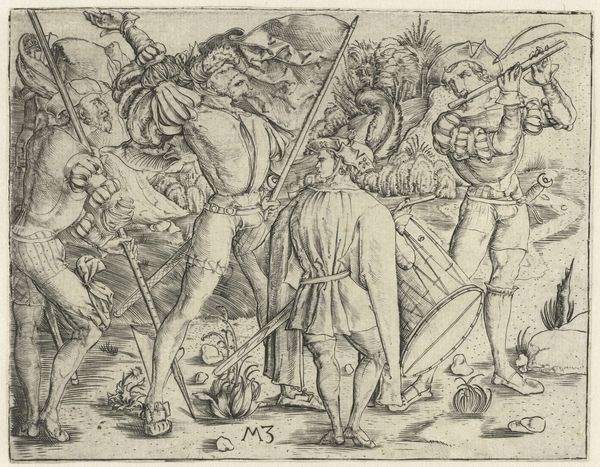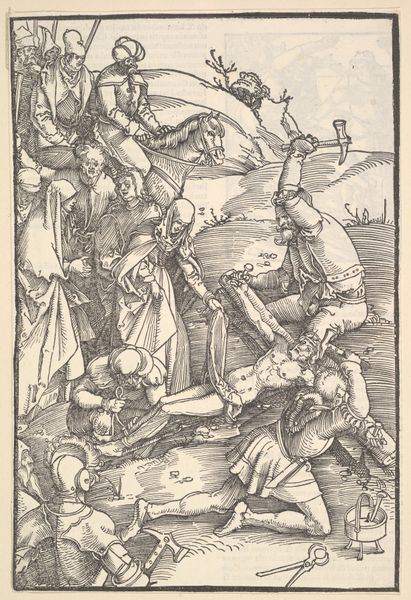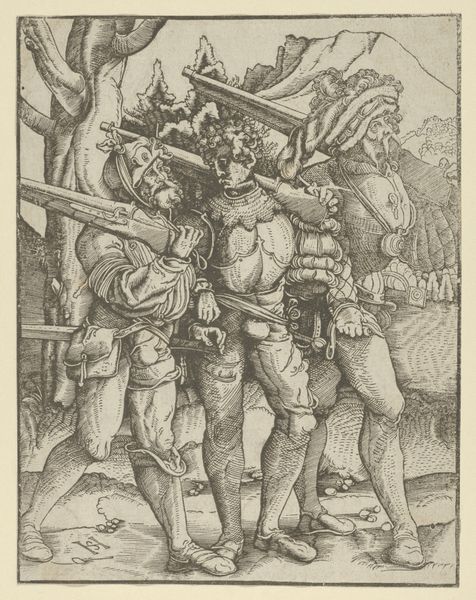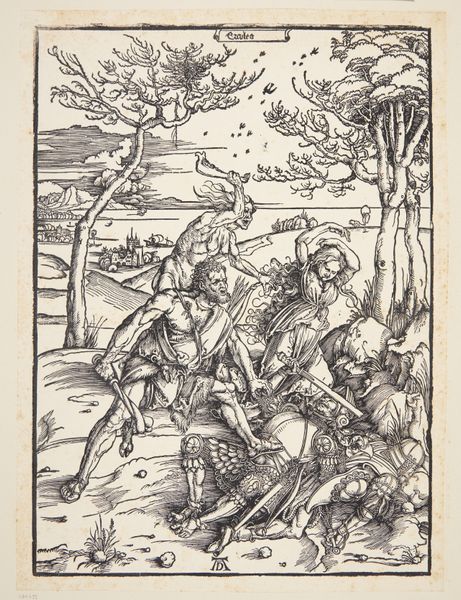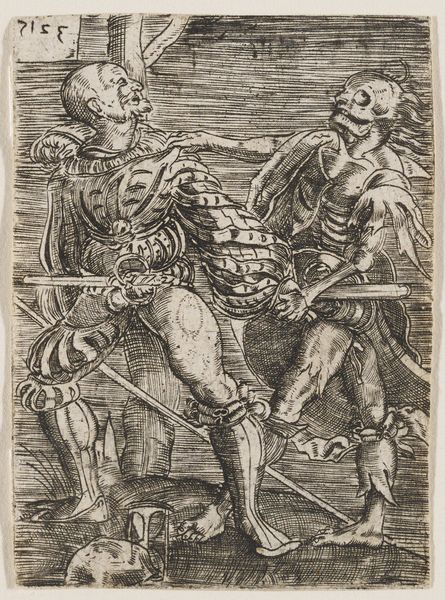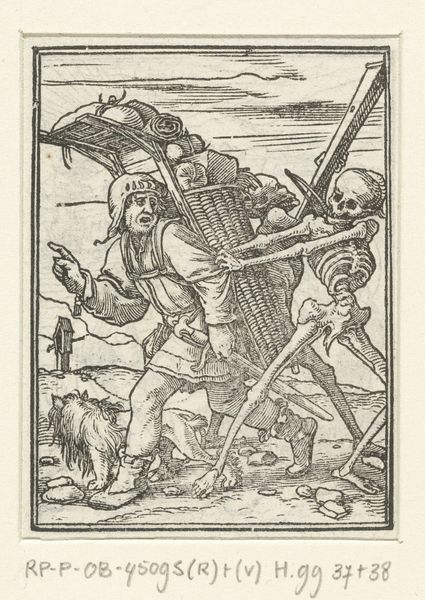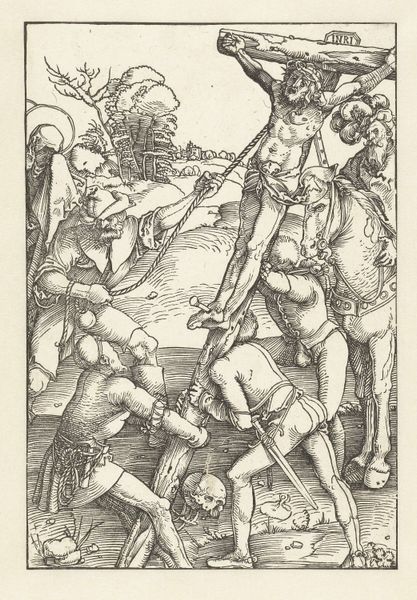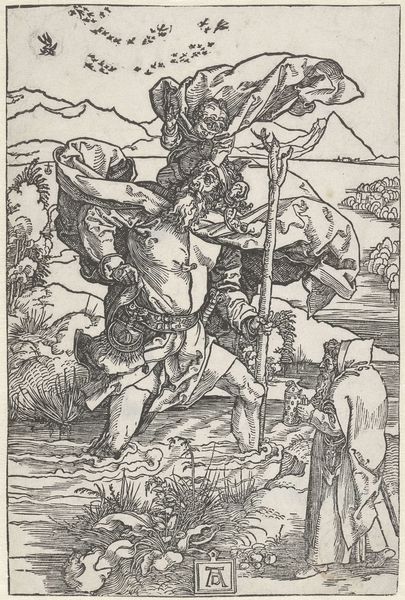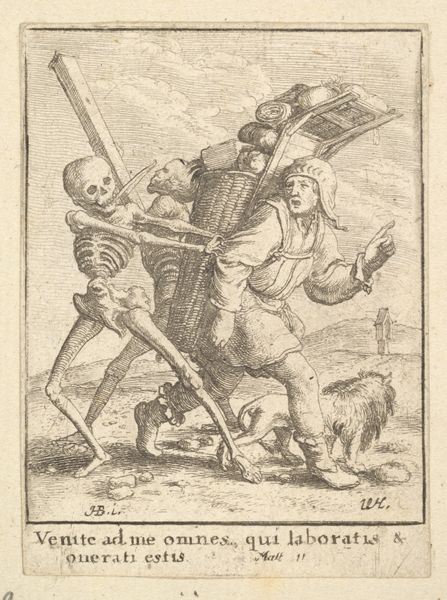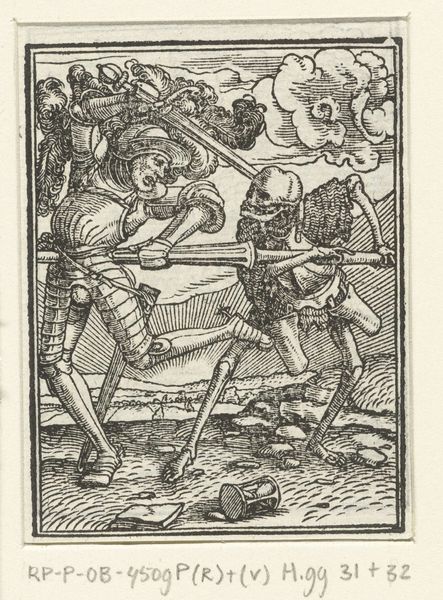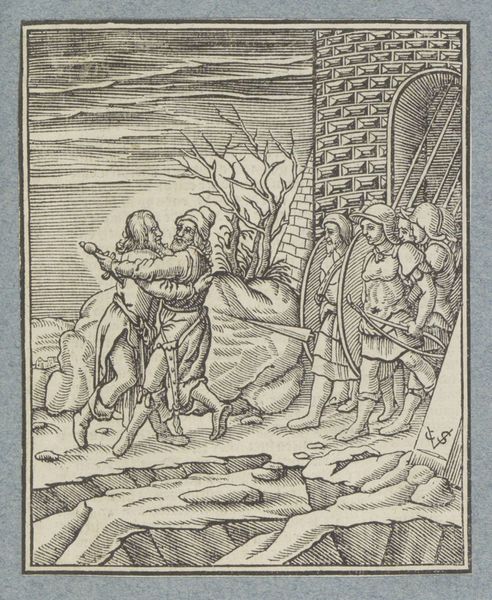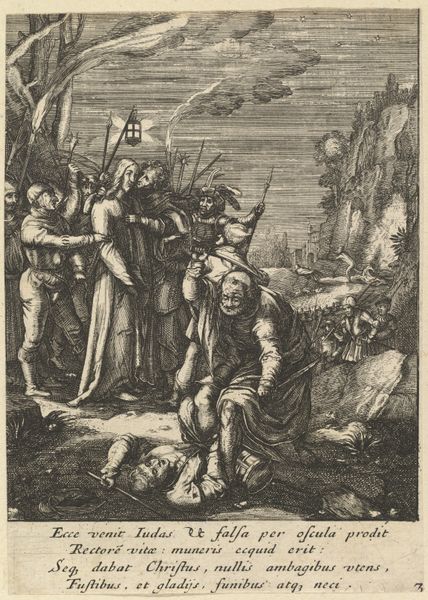
drawing, print, etching
#
drawing
#
medieval
#
allegory
#
narrative-art
# print
#
etching
#
death
#
figuration
#
vanitas
#
line
#
history-painting
Dimensions: Sheet: 2 7/8 × 2 1/8 in. (7.3 × 5.4 cm)
Copyright: Public Domain
Wenceslaus Hollar etched this plate, *The Knight, from the Dance of Death*, sometime in the 17th century. Here, the grim reaper confronts a knight in full armor, a stark visualization of mortality's inescapable grip. Death, armed with a spear, defeats the knight who is protected with his armor and sword. The Danse Macabre motif was popular during the Late Middle Ages as a visual meditation on death. As seen here, it often portrays death as an animated skeleton leading people from all walks of life. This motif is not unique, however. As a symbol, the skeleton leading humans is eerily similar to ancient depictions of psychopomps, such as Hermes, who guides souls to the underworld. Consider the emotional undercurrent: death is personified, it is a reminder of life's fleeting nature and a stark memento mori. As this symbol transverses time, consider how collective memory can affect the meaning of the skeleton. Is it always negative? Perhaps it is a reminder to appreciate the present.
Comments
No comments
Be the first to comment and join the conversation on the ultimate creative platform.
